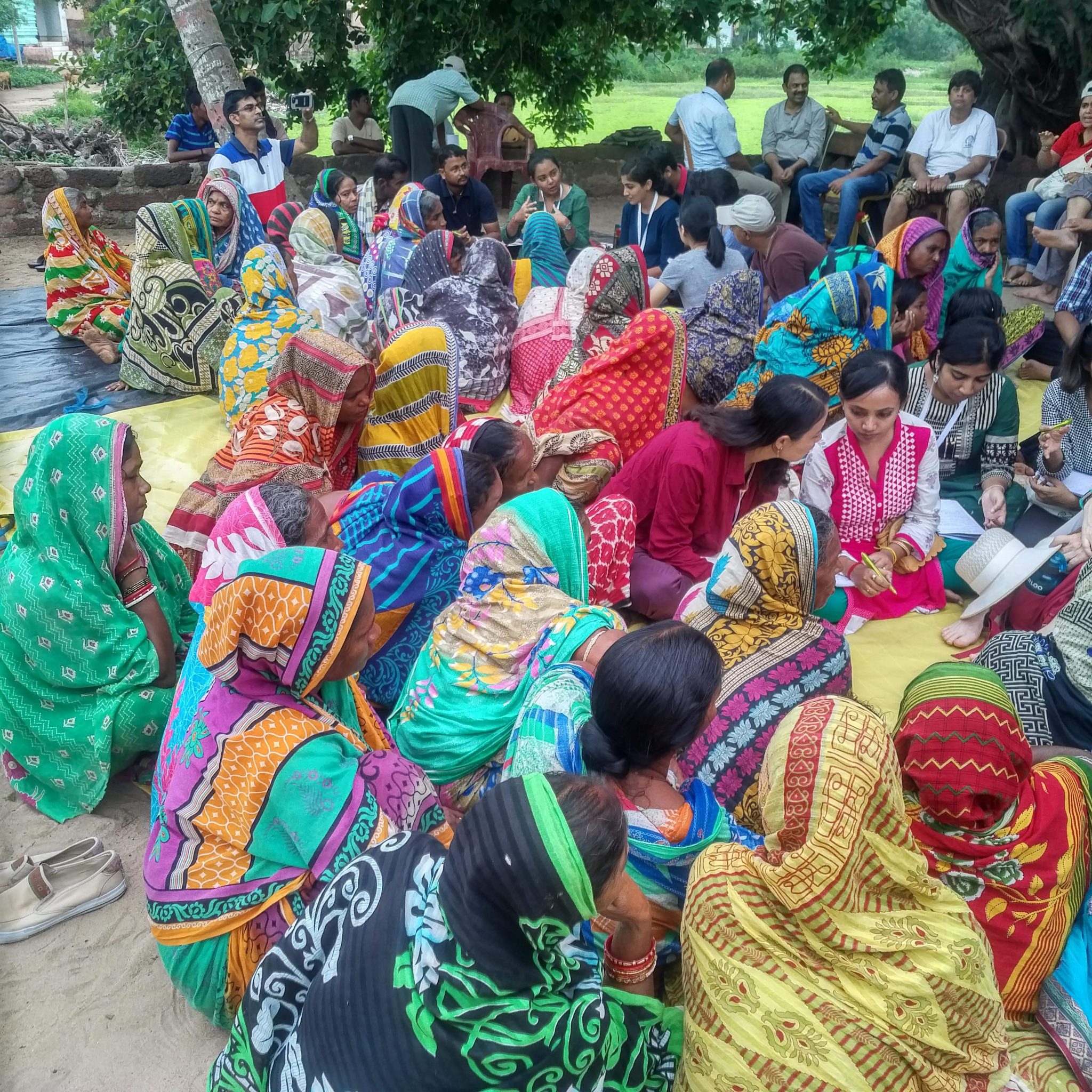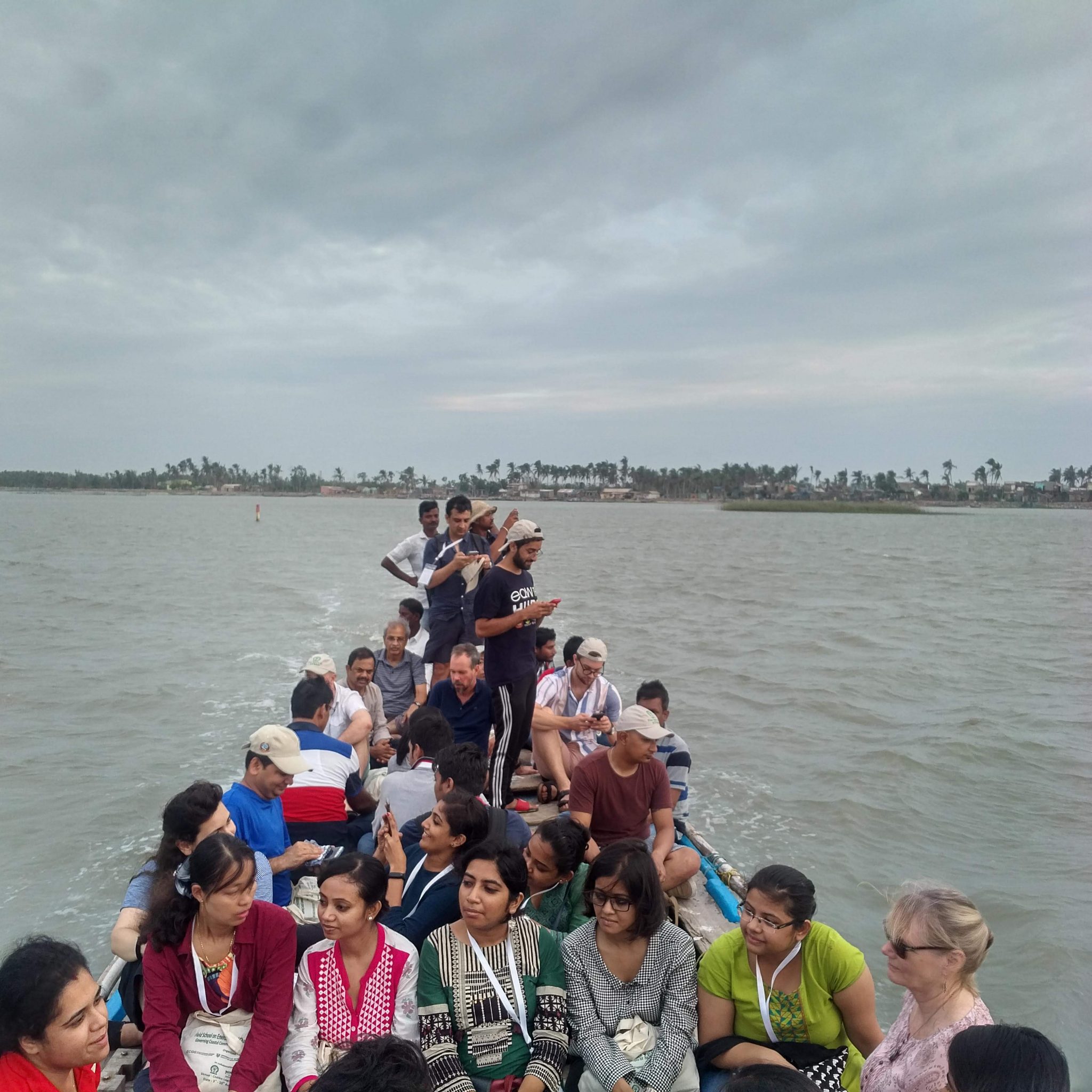About the project
 Vulnerability to Viability Global Partnership (V2V), a new research initiative led by Dr. Prateep Nayak, received a seven-year, $2.5 million Partnership Grant from the Social Sciences and Humanities Research Council (SSHRC), Canada.
Vulnerability to Viability Global Partnership (V2V), a new research initiative led by Dr. Prateep Nayak, received a seven-year, $2.5 million Partnership Grant from the Social Sciences and Humanities Research Council (SSHRC), Canada.
SSHRC Partnership Grants provide support to new or existing partnerships for initiatives that advance research, research training, and/or knowledge mobilization in the Social Sciences and Humanities. The partnership also received generous contributions from regional, country and international partners.
The V2V Global Partnership constitutes a novel, first of its kind, transdisciplinary initiative for the co-creation of knowledge and the development of community-based capacity to reduce vulnerability and enhance viability of small-scale fisheries (SSF) in Asia and Africa.
V2V will critically examine diverse factors and conditions contributing to the 'vulnerability' of SSF, and engage collaboratively with SSF communities and other key NGO, government and university partners, including TBTI, to enhance SSF viability. The V2V will also provide a new outlet for many TBTI related activities.
Dr. Nayak is Associate Professor at the University of Waterloo. He is also the coordinator of the TBTI 'Global Change Responses' research cluster. The 100 members and partners of the V2V Global Partnership represent 31 universities, 15 government institutions, and 21 NGOs from 22 countries – all with a shared interest in addressing global change impacts on small-scale fisheries.
Project objectives
 Most SSF communities are economically marginalized, and increasingly vulnerable to climate and environmental change. But the prognosis is not all negative. SSF possess strengths and forms of resilience upon which to build viable solutions to combat food insecurity and poverty.
Most SSF communities are economically marginalized, and increasingly vulnerable to climate and environmental change. But the prognosis is not all negative. SSF possess strengths and forms of resilience upon which to build viable solutions to combat food insecurity and poverty.
Four specific research and action-oriented objectives guide the V2V Global Partnership:
(1) To co-produce a comprehensive understanding of both the sources of vulnerabilities experienced by SSF, and their inherent and potential capability to enhance viability;
(2) To develop a database and resource portal of V2V case studies and those from elsewhere to integrate and mobilize the knowledge produced;
(3) To engage in transdisciplinary (TD) capacity development of SSF communities, governments, NGOs, civil society actors, and the academic community to enable them to co-create and implement innovative solutions to move from vulnerability to viability; and
(4) To compare and synthesize experience between and across study sites, scaling up the insights for broader impact through the development of national and regional policy recommendations, program interventions, and governance arrangements that support viable, community led SSF initiatives.
Under the scope of this project, community-engaged research will be conducted in six countries in Asia (Bangladesh, India, Indonesia, Japan, Malaysia, Thailand) and six countries in Africa (Ghana, Malawi, Nigeria, Senegal, South Africa, Tanzania).
Comparison and synthesize between and across study sites will help the V2V Partnership to scale up the insights for broader impact through the development of national and regional policy recommendations, program interventions, and governance arrangements that support viable, community-led SSF initiatives.
The V2V Partnership will support transdisciplinary training opportunities for 52 graduate students and early career researchers, a unique Fellows Program to support 20 South-South-North collaboration, the development of curricula for training in conjunction with academic and civil society partners, and the development of an open-access information system and global resource portal to provide a powerful tool for SSF research, policy, and action.
















